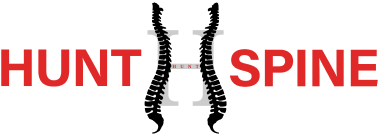Recovery from neurosurgery might seem like a long, daunting road, but there are many ways you can help prepare yourself or a loved one for your time post-surgery. Here are a few things to keep in mind as you begin your preparation.
How Long is Recovery?
When you make the decision to undergo neurosurgery, one of the first questions you’ll naturally have is “how long will it take to recover?” The length of time it will take to recover depends on the type and level of invasiveness of spine surgery you will undergo for your specific condition.
Recovering from neurosurgery can vary from weeks to months based on your prescribed treatment plan. When the day of your surgery arrives, your main objective post-surgery will be to rest. Following the rest and physical therapy plan prescribed by your neurosurgeon is the best way to ensure you will be back on your feet as quickly as possible.
What Helps the Healing Process?
There are many actions you can take in preparation for your spinal surgery to ensure a faster, easier recovery.
Eat a healthy diet. Consuming a diet full of nutrient-rich foods is essential to giving your body the fuel it needs to aid in recovery. Drink plenty of fluids. Keeping your body hydrated aids in the ability to heal. Rest. We cannot emphasize how important it is during the weeks and/or months following your surgery to allow your body to recovery. Get moving. Once your neurosurgeon has given you the go-ahead, begin taking short walks each day. Walking is the best way to get the exercise you need while recovering from back surgery. Follow your exercise and physical therapy program. Your Los Angeles neurosurgeon will give you a specific plan tailored to meet the needs of your recovery. Following these directions is vital to the success of your recovery. Stay positive. It’s amazing the difference a positive mind-set will make in achieving a full recovery!
What Should I Avoid While Recovering from Neurosurgery?
While it’s important that you begin to move once your neurosurgeon has released you to do so, it’s imperative that you abstain from certain activities during the recovery process.
Avoid any activity that will require you to bend, twist, or otherwise rotate the spine until your neurosurgeon has given you permission to do so.
Smoking or drinking excess amounts alcohol should be completely avoided during the healing process.
Avoid swimming or taking a bath until your incision is fully healed, and our neurosurgeon has given you the okay.
Warning Signs to Look for Following Neurosurgery
Neurosurgery has been executed for several decades with great success, however, there are a few warning signs of which you should be aware. If you should develop a fever above 100 degrees, chills or trembling, or any redness, pain, or discharge coming from your incision, contact us at Hunt Spine immediately.
Other Helpful Tips for Recovery
Pain Management: Stay ahead of the pain. You will be prescribed medication to help you manage the pain following your neurosurgery. It is important that you follow your neurosurgeon’s directions to for taking your prescription to help your body to heal as quickly and easily as possible. Pain management is an important part of that process. If for any reason the pain medication you are prescribed isn’t effective, contact our neurosurgeon immediately so we can help. Listen to your body: Your body will give you very clear signals about its need for rest to aid in recovery. Be sure to listen to those cues. Since it is during rest that your body heals and repairs itself, you will need more rest than you are accustomed to when healing from surgery. Ask for help: Normal everyday tasks will take a bit of effort during recovery from spine surgery, especially in the early stages. Having family and friends who can assist in those tasks will be an important part of your recovery. It will be several weeks before you will be released to drive yourself due to the narcotics you will be taking to manage pain. Additionally, you may need assistance in buying groceries, keeping your home clean, bathing, and staying ahead of your daily routine. Make sure you ask for help from your loved ones when you need it, so you can rest and heal. Be patient: Each body heals itself at a different rate, depending on your age, level of physical fitness, and the extensiveness of your surgery. Try not to get frustrated if you don’t progress quite as quickly as you would like. Recovery takes time.
The habits you learn as part of your exercise and physical therapy program following neurosurgery will help to instill new habits that will lessen the chance of re-injury to your spine. Once you’ve scheduled spinal surgery with your Los Angeles neurosurgeon at Hunt Spine, you’ve already taken one step toward recovery from back pain. We carefully monitor our patients throughout the recovery process and are always available to answer any questions or concerns.


